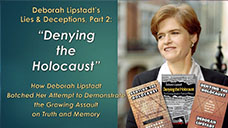The boy is now four years old and he won’t talk. Beyond Mama, Papa and Auto, he hardly says a word. To his father it seems he is a bit retarded, though his mother notices that his other behavioral patterns indicate he is quite a bright child. Both parents have an argument over their son’s unwillingness or inability to talk. She wants to let him have his pace, he wants to have a therapist look at it. But the mother’s patience pays off. Just a few weeks later, it is as if the boy had suddenly found his words. It seems as if he was preparing silently for the big breakthrough. As if he didn’t want to feel embarrassed by making mistakes, as if he had decided to learn to speak properly first before actually doing it. So from one day to another he suddenly is there: Complete sentences, correct grammar, fast speed – sometimes too fast for his father to follow, since the boy also talks rather silently and starts mumbling when his father is present, because he is always afraid when his father is around.
Change of Scene
"Yes, but why is iron magnetic and aluminum not?" He drives his mother up the wall. Not that this wouldn’t be the way boys are, but it is bit more than is usual with boys of his age. He just wants to know answers to questions that she did not even think about, and she has no idea how to handle him. If he doesn’t get answers that sound intelligent to him, he gets angry, and he won’t put up with something she makes up. Unfortunately, her husband does not really care to help her out, and she actually doubts that he could. They both enjoyed only a very limited education, and the kind of questions this 7 year old is asking is simply beyond their horizon.
"I need to talk to you about your oldest son", she approaches him that same night. "I was at school today and his teacher again told me that his reading skills are just not what they should be. What could we do to make him start reading." As usual, her husband is not a great help in trying to solve their son’s unwillingness to read any of the books they gave him: children stories, fairy tales, adventure novels, cowboys and Indians, nothing attracts his attention.
In a last ditch attempt to salvage the situation, she has an idea. For his 8th birthday, she manages to organize a book with the title Physics for Children. Perhaps that solves both problems they have with him: Get him off her back with all these questions, and get him to read. And what a success it is! It takes him just a few days and he has read the book from one end to the other and starts making his own little experiments out in the yard. Christmas approaches, and the second and third volume of this series are his mother’s hope that this might be the breakthrough. And it is! He absorbes these books like a dry sponge absorbes water. From there on, it is an easy game. On scientific series for children after the other fills the boy’s shelve. Geology, Meteorology, Chemistry, Astronomy, Physics, Paleontology, and what have you. One of these days, while his mother talks to him about this, he brings it to the point:
"Just don’t give me novels, sagas, and fairy tales. All this tuff isn’t true anyway. These are all lies and inventions. I don’t want stories to be told, I want to know!"
Change of Scene
"What is all this crap good for anyway? You cannot use if for anything, and it isn’t solving any of our problems! You shouldn’t waste your time with all these books about earth history, astronomy, and paleontology, but learn something useful instead" his father insists. Noticing the anger in his father’s voice, the 14 year old son fears he might take away his books, or forbid him to get any more. But fortunately the father just wanted to express his disappointment of his son’s allegedly misguided interests. The son cannot believe that his father is so narrow minded, has no comprehension of the pleasure it gives when learning and understanding about the fascinating miracles of this world. At least the father accepts his interest in meteorology and helps him build his own little weather station, recording weather data in meticulous detail.
During one of his trips to the village’s only little bookstore in search of new interesting science books, he tumbles over a flyer lying on the shop’s floor, dirty and torn from many customers carelessly stepping on it. It is an advertisement for a popular scientific magazine. The boy gets all excited about the topics allegedly addressed in it. It takes only a bit of begging, and his mom agrees on subscribing to it. Finally, he found the big scientific world!
The son’s 15th Christmas is approaching. He is now in his 4th year at the local elite school. Due to poor performance, his sister has dropped out of elite school just a year ago and had to go back to the regular school instead, another severe blow against her self-confidence. Worried about his son failing elite school as well – after all, how could his son possibly be so much smarter than he was? – the father wants do show him that even if he doesn’t make it, there are still professions which are interesting. So he gives him a book for Christmas entitled "Professions without Elite School Diploma". At the receiving end, the son thinks his father wants to send him a totally different message: I have doubt that you can make it, that you even should make it. The boy is upset, feels offended and challenged, and at this very moment decides to move heaven and earth to be the first in his family of workers and farmers to go to university and get a degree.
Change of Scene
The family has moved to a medium size city. Hence, the boy spends the last three years of his elite school at a different, tougher school. For the first time in his life he needs to learn actively and systematically. It is now that he realized what his teachers in the small village he grew up in meant when they said "He could perform so excellently if only he would learn". He now understands that he hardly ever learned in those years. He made his homework, and sometimes would pore over his books for a few hours just before he had to write a test. But systematically learning, what was that? He was at elite school, and having an average somewhere between a B and a C was good enough for him. So why bother? The new school, however, was different. It was in a different State, with a different curriculum, and the learning pace was definitely faster. Applying his old technique led to a foreseeable disaster after the first semester. So in 11th grade he finally sits down and systematizes his learning procedure. In just two years he makes it from a D candidate up to a straight B candidate.
Also, this new city they live in has a library that actually deserves the name: he consumes academic literature on his old hobby topics: meteorology, paleontology, astronomy, physics…
Change of Scene
The first semester at the university in Bonn in 1983 is perhaps also the most fascinating. After all these trials and tribulations, he finally has reached his goal. From now on, everything seems like a breeze. He finally can focus on what interests him. But it also comes with a disappointment: Most students actually do not study because they are fascinated by their topic, but because they feel like they had to do something, so they pick something. He calls them random students. They are lazy and unmotivated and slow the entire learning and teaching process at all classes massively down. So he gets bored with the teaching pace during the first three semesters and finds a new hobby for himself: history. The catholic fraternity he just joined is a great support in this regard: A big library with history books, and right during the first semester, they organize a seminar where several renowned professors from all over the country lecture and discuss on patriotism and the problems Germans have with it due to their twelve years lasting Thousand Years. So far, professors were these impressive, untouchable, unapproachable authorities for him. Now he was in close touch with them, talking and discussing with them as equals, being taken seriously by the intellectual elite of the country, and this at age 18/19! He also learns many lessons about this fraternity’s ideals: Christianity, Patriotism and Altruism, Quest for Knowledge and Wisdom, to serve and give rather than to expect and demand. What an impressive intellectual stimulation! The interaction between German history and patriotism becomes a main theme in his thinking during the following years.






